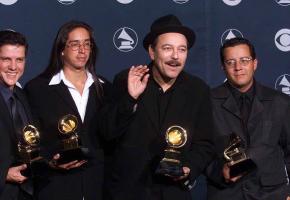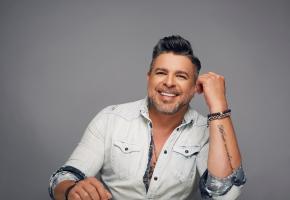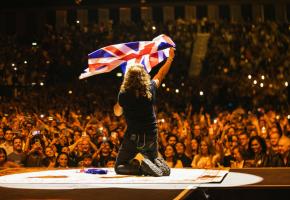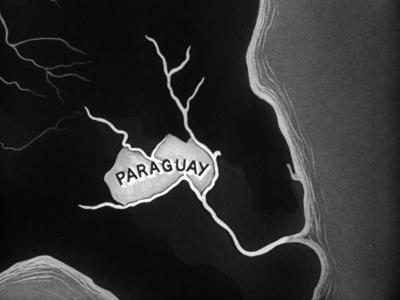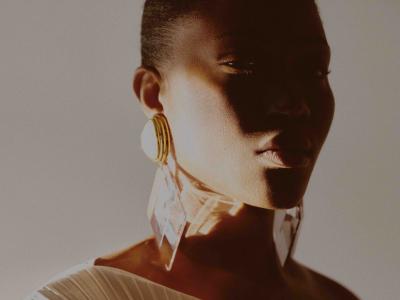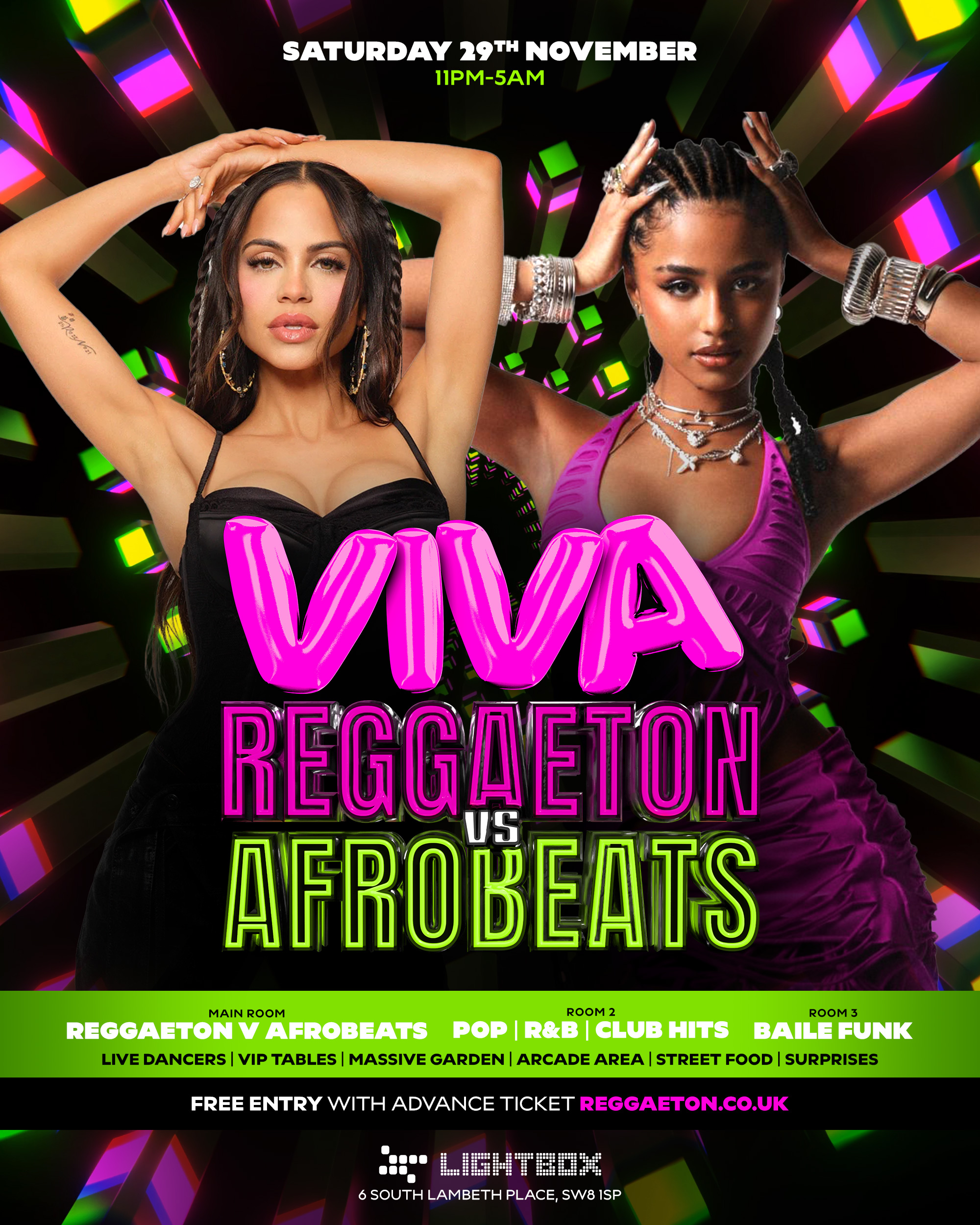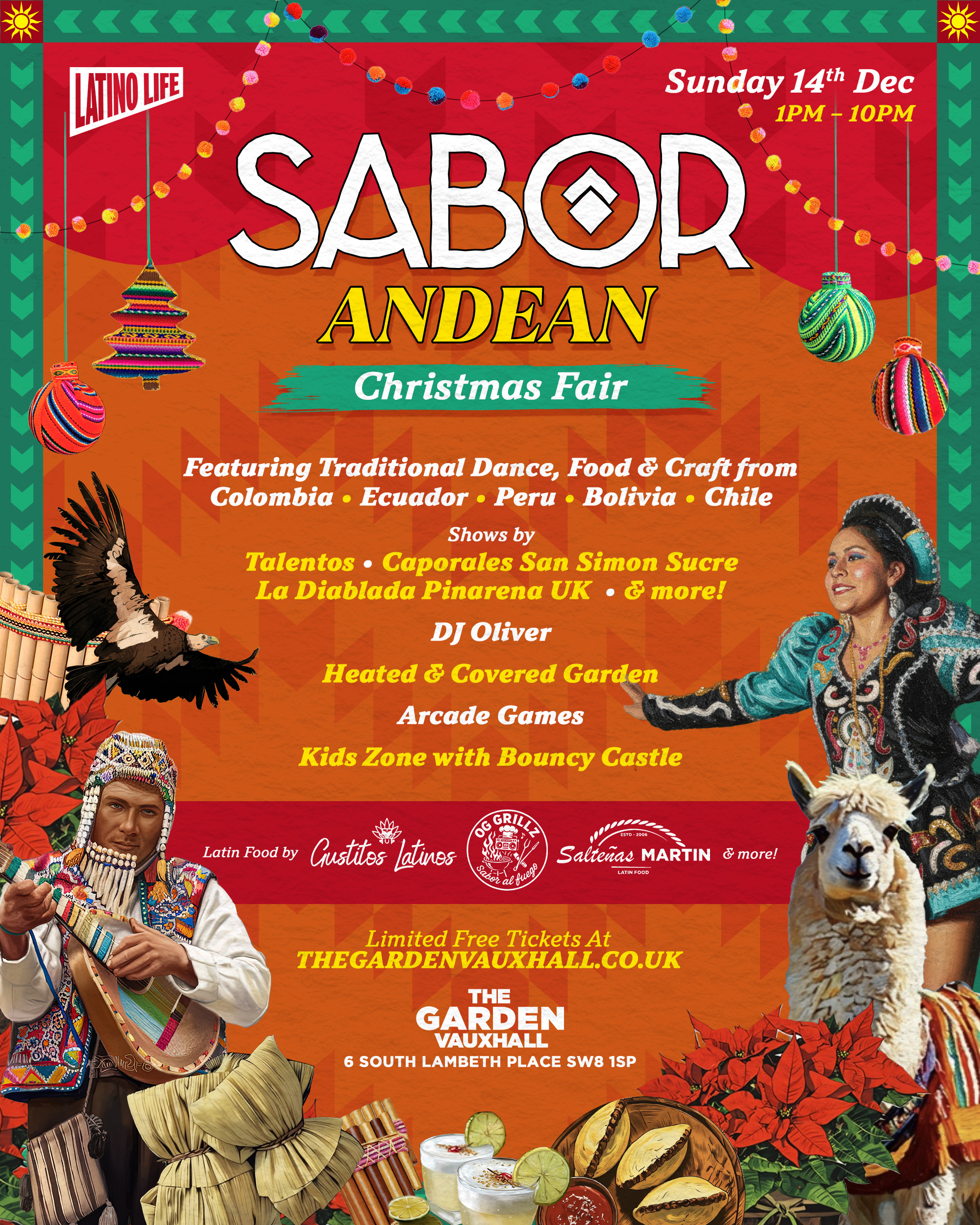By infusing his chart-busting pop with Latin rythmns, The Kid invented that hoary old beast “World Music” almost a decade before anyone else had a phrase for it and was always too smart to be labelled by it. Having almost single-handedly defied the established rules of chart success when his musical career began in the mid-1970s, August Darnell, lead man and song-writer, is a pioneer and a hero to many. Candela caught up with him to ask what he has been doing since his the debut release ‘Off The Coast of Me’ in 1980, and what we can expect from his live performance as part of this years La Linea festival.
Candela Live: Having grown up in the Bronx surrounded by multiple musical genres and influences. What was it about Latin music and Salsa specifically that inspired you to use it as a cornerstone part of your composition?
August Darnell: The thing that interested me about Latin music was the sound. Growing up in the Bronx there was a large Puerto Rican influence but it was the percussion and the passion more then anything I wanted to include in my music: the bongos, timbales and conga especially. I wanted to experiment and include all these things I picked up in my own work. I was never conscious of it being “world music’ but I loved the elements of putting together different sounds into a ‘melting pot’.
CL: Obviously, your lyrics have sometimes been controversial but also thought provoking and intelligent. What comes first for you the music or the words?
AD: Originally it was the words because when I first started in music it was with my brother Stonny’s band Dr. Buzzard's Original Savannah Band my brother wrote all the music. He would give me the melody and maybe a title and ask me to come up the lyrics. My first love was lyrics and that was to do with literature being a huge part of my life and especially poetry. I was a student of literature and I came to be a musician after I had completed all my studies. It was that which drew me to music in the first place. It was when I had to start writing music for myself that it became a pivotal focus of mine. But my first love was lyrical expression.
CL: You have worked with an impressive array of artists on different formats; theatre, studio production and musicals to name a few. Which gives you the biggest buzz? Performing live, recording, production or writing?
AD: I actually love recording because you are trying to achieve what you have created in your mind. Trying to make a marriage of music and lyrics. Sometimes you achieve it and sometimes you don’t, it is an effort that I appreciate enormously. However, I also love the immediate gratification that comes from the live experience. The problem with the studio is that you don’t get the gratification, you don’t know if anyone will ever hear the song so you have to be self-sufficient and really love what your doing. I would say it is an equal measure, I love writing the song, recording the song and the live act of performing.
CL: You are famed for your zoot suits and fantastic live shows. For your upcoming show at the Barbican can we expect the original and cool Kid Creole that we know and love or maybe something a little different?
AD: There will be both. I’ll have the traditional zoot suit, my favourite the pink, a yellow one and a white 1940s double breasted one. The Coconuts will have a about five costume changes. The show will be theatrical because that is what the band is about. I think people would be disappointed if they came to a Kid Creole show and I was wearing jeans. The show is a lot to do with style and theatrical presentation. But at the same time if it was only that it wouldn’t be Kid Creole and the Coconuts it is also about the music of course.
CL: The Coconuts have changed over the years. Do you select them or is it arranged for you?
AD: In the original days my wife at the time was in charge for selecting the Coconuts but recently we have been very fortunate to have the same girls for a 13 years now. The girl who is in charge of the Coconuts is called Eva, we call her ‘mama coconut,’ she is in charge of selecting the girls although I have the final say if someone doesn’t fit my taste. You couldn’t do what I do onstage if they were strangers because there is too much interaction. No actress in the world could put that kind of performance forward. It is the familiarity that we have, it is very intimate rapport. It is the same with the loyal musicians who have followed me for years. We have a very tight outfit on stage. Primarily the main attraction on stage is like a ‘3-ring circus’ there are the coconuts to the left, me in the centre and bongo eddy to the right (the only remaining original member of the band.)
CL: You inspired a generation and have recently said that you have a new energy and have felt a new energy in the younger generation. Do you see yourself as a teacher in some ways and are you hoping to see young, fresh faces at the Barbican gig?
AD: Interestingly, thanks to the internet and youtube the music has found its way through to younger generations and the music has been covered by new artists. The audience recently has been mixed; old-timers who have come to see their hero and new people who have never seen the band before. It is very healthy to keep the name and the music alive.
CL: Could this show be a stepping-stone to a world tour and other Kid Creole concerts?
AD: Well, to be honest with you, you have to be careful what you wish for because you just might get it. I wouldn’t want to do another world tour. I like the sporadic touring now, festival shows and then days off. Touring is very gruesome and very tiring. The Barbican is a great opportunity to bring this show back to London in its full format. I am looking forward to that and I think it could create an awakening of Kid Creole in England.



